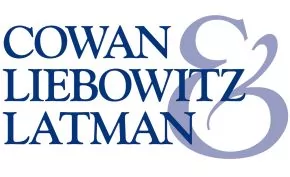In selecting a word to use as a trademark, don't assume you know what it will mean to all consumers.
We are bound by our personal experiences, and we tend to think everyone shares those experiences. In clearing a proposed mark, we normally focus on whether it will cause a likelihood of confusion with an existing mark, and sometimes on whether it will dilute the uniqueness of a famous mark.
Deeper research may reveal an unfortunate surprise because different cultures or languages may cause a word to have an unanticipated connotation.
An Unfortunate Choice
An article in The Guardian reported on two instances in point.
- A brewery named Hell's Basement in Medicine Hat, Alberta, Canada adopted the mark HURUHURU for its New Zealand hopped pale ale, believing it to mean "feather," which was intended to suggest that its ale was light as a feather.
- A small leather goods shop in Wellington, New Zealand adopted HURUHURU AUTHENTIC LEATHER for its shop name, believing the word to mean "wool, or feather, or fur," which fit its initial plan to market New Zealand wool products.
It turns out that "huruhuru" is commonly used by New Zealand's indigenous Māori people to refer to "pubic hair." Both adopters indicated they neither knew of this nor intended to offend the Māori people.
The brewery in Canada is going to rebrand its beverage.
The leather goods shop in New Zealand has received threats and has taken its Facebook page down. But the shop does not intend to rebrand because of the expense involved—for example, the mark appears on jacket linings and hangers. Furthermore, the Māori Advisory Committee of the New Zealand Intellectual Property Office (IPONZ) had approved the shop's applied-for mark that displayed the design of a sheep's head above the word "huruhuru."

An IPONZ spokesman said that it had assessed whether the application met the requirements under the New Zealand Trade Marks Act: "Taking into account the trade mark in its entirely (including the image of a sheep) and the goods and services in relation to which the trade mark was to be used, the committee did not consider the trade mark was likely to offend Māori."
Other Examples
Over the years, there have been many reported instances of the adoption of a trademark with an unfortunate connotation. Here are just a few marks, some of which nevertheless are currently in use, that did not translate well:
- Pee Cola -- a popular soft drink named "very good cola" in Ghana.
- Fart Bar -- a candy bar whose name means "lucky bar" in Poland.
- Barf -- an Iranian detergent meaning "snow" in Iran.
- Lumia -- a smart phone named with the slang word for "prostitute" in Spanish.
- P'zone -- a pizza whose name may be pronounced "pezón," meaning "nipple" in Spanish.
- Bing -- a search engine whose name means "illness" in Chinese.
- Latte -- a coffee drink name that means "erection" in German.
- Sega -- a video game console whose name is slang for "masturbate" in Italian.
- Laputa -- a Japanese car whose name may be associated with "La Puta," meaning "the whore" in Spanish.
- Kona -- a Japanese car whose name may be associated with "Cona," a vulgar expression for female genitalia in Portuguese.
- MR2 -- a Japanese car whose name is pronounced in French as "M-R-deux" sounding like the French swear word "merde."
- Uno -- an Italian car whose name means "fool" in Finnish.
- Reventón -- an Italian car whose name means "flat tire" in Spanish.
- Espero -- a Japanese car whose name means "I hope" in Spanish.
- Jetta -- a German car whose name is like "ietta" which means "losing streak" in Italian.
- Irish Mist -- a whiskey whose name means "Irish manure" in German.
U.S. Law Permits Registration of a Disparaging, Immoral or Scandalous Mark
The U.S. Supreme Court has held that it is unconstitutional for the U.S. Patent and Trademark Office to refuse to register a mark on the ground that it is disparaging, immoral or scandalous. See our prior Trademark Law Alert on this topic.
A related consideration in the U.S. is the "doctrine of foreign equivalents," which prevents registration of a mark in English that is likely to be translated into a previously registered non-English word. See our blog post on this topic.
Regardless of registrability, from a marketing viewpoint it may be unfortunate to adopt a mark that suggests a rude word in another language. Furthermore, although a non-English mark with a rude meaning may be registered in the U.S., that registration could prevent the U.S. registration of its English-language equivalent even if the meaning in English is perfectly proper.
Takeaway
When you research a proposed word mark to clear it for use, especially when it is for international markets or for domestic consumers from other cultures or who know other languages, it is desirable to find out whether it may have an unfortunate connotation in other cultures or languages beyond its literal meaning.
Originally published August 20, 2020.
The content of this article is intended to provide a general guide to the subject matter. Specialist advice should be sought about your specific circumstances.

